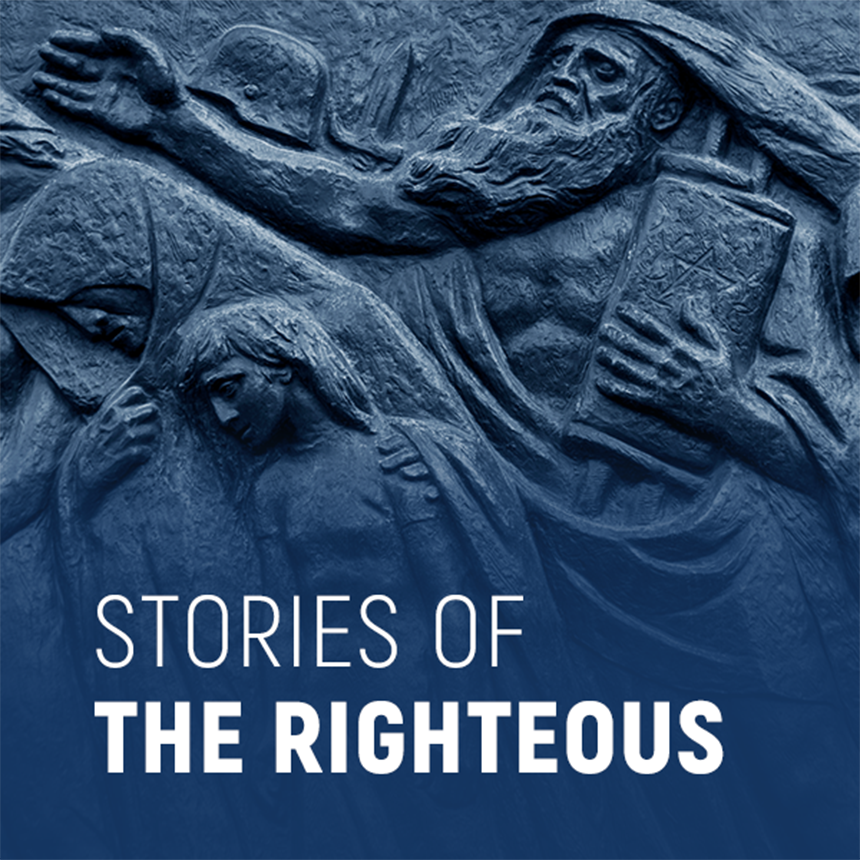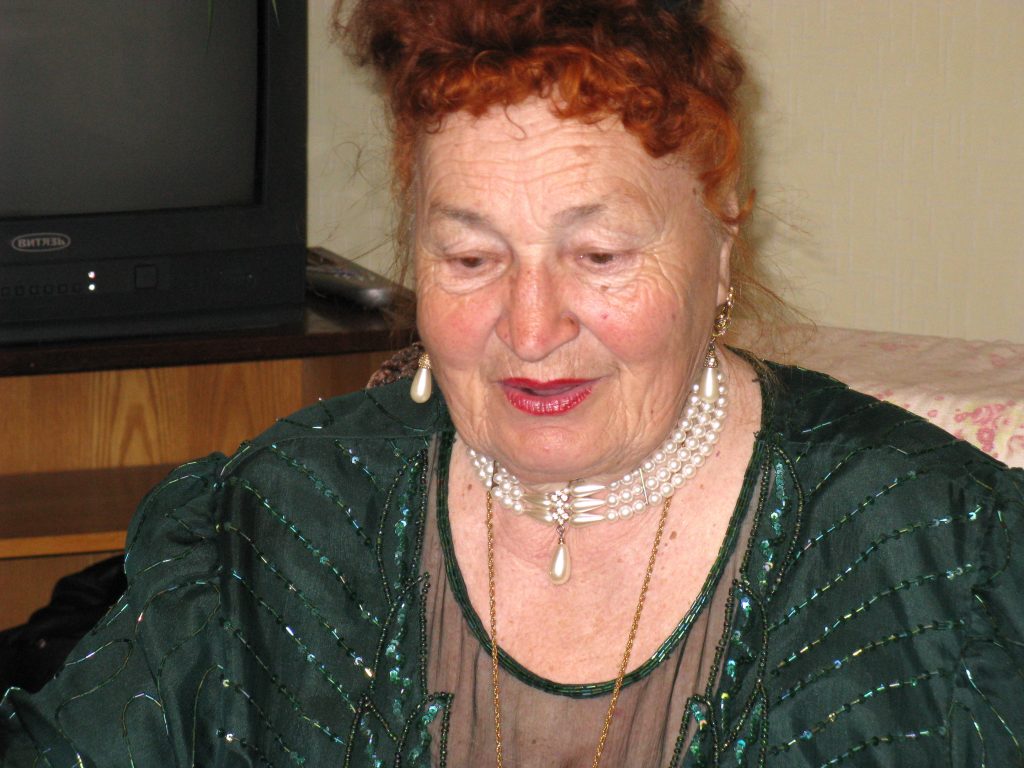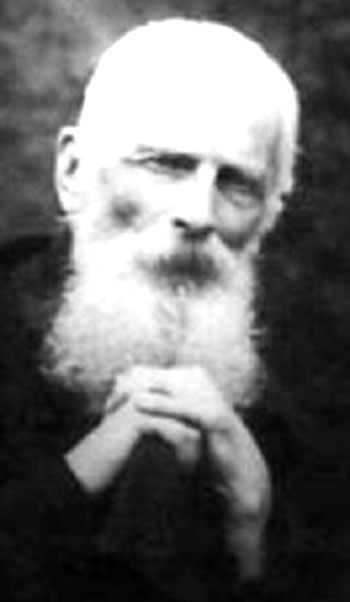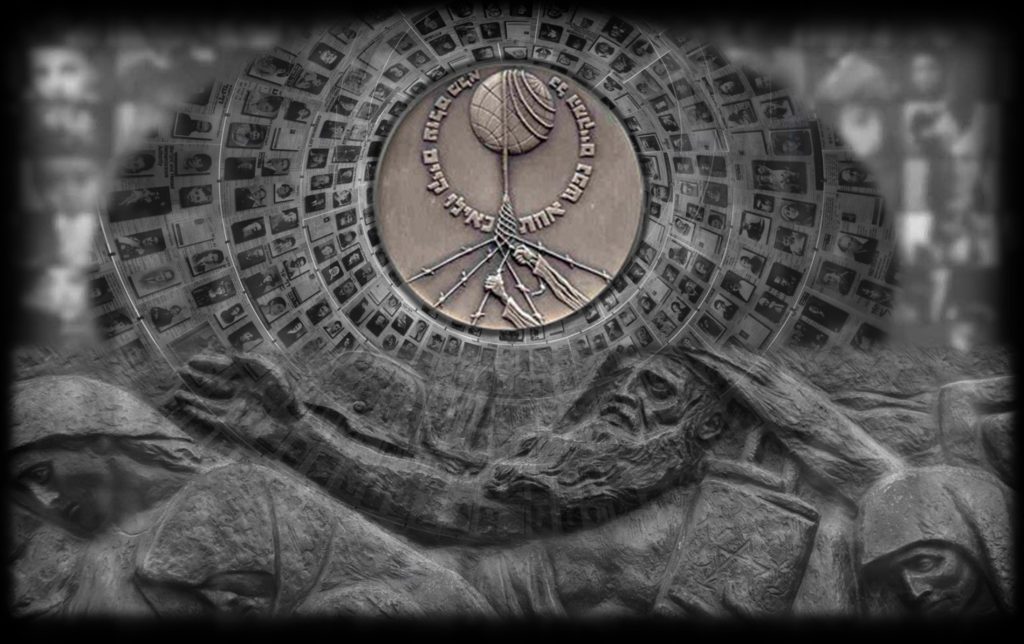Righteous Street: How Ukrainian cities honor the Righteous Among the Nations
Toponyms in honor of the Righteous Among the Nations are found in thirty-two cities and villages of Ukraine, (Part 1)
Marharyta Ormotsadze
The most touching and heroic pages of the Holocaust are the stories of Jews being saved by the non-Jewish civilian population — unarmed, frightened, and penniless. For this act, the German authorities would execute the entire family of the rescuer. Despite this, ordinary citizens rescued their Jewish friends, relatives, neighbors, and often strangers in the street. They would give them shelter and their passports and help them forge documents. They would feed them, help avoid interrogation, and rescue them from ghettos. And this was in all of the years of Nazi occupation.
Considering the unprecedented sacrifice, risk, and voluntary nature of these heroic deeds, the State of Israel established the honorary title of the Righteous Among the Nations. Those who are granted this title are recognized as moral heroes throughout the world.
As of 1 January 2021, Yad Vashem — The World Holocaust Remembrance Center recognized 27,921 rescue cases worldwide (including rescue by families and groups of people), of which 2,673 happened in Ukraine. As Yad Vashem emphasizes, the figure only means that this many cases have become known and been recognized as worthy of the title of the Righteous Among the Nations. In fact, more rescue stories are known, but the rescuers cannot be recognized as the Righteous Among the Nations for various reasons. Ukrainian historians estimate the actual number of people from Ukraine, who could be called the Righteous Among the Nations, is more than 20,000.
The Soviet Union pursued a policy of concealing the Holocaust and the negative attitude towards all those who lived in the occupied territories during the war. As a result, many Ukrainian rescuers had no recognition until 1991, and thousands of rescue stories were lost. They are almost impossible to recover today.
It is the honor and mission of our generation to do our utmost to commemorate the heroic deeds preserved in human memory. The Righteous are the subjects of modern-day films, exhibitions, and books. Streets, parks, alleys, and monuments are named in honor of the Righteous so that as many people as possible learn about rescue stories. Our organization, with the participation of the Association of Ukrainian Cities, surveyed the citizens of more than 120 cities in Ukraine to find out how communities honor their heroes today. In August 2021, we found toponyms named in honor of the Righteous Among the Nations in thirty-two cities and villages of Ukraine.

The initiators
In the years of Ukraine's independence, there have been several campaigns to rename streets in honor of the Righteous Among the Nations. For the most part, these were the initiatives of NGOs and ordinary local people, who lobbied for place-names that commemorated the Righteous.
The largest project is The Righteous People of My City project run by the Jewish Confederation of Ukraine with the participation of Vice President of the World Jewish Congress Borys Lozhkin.
"The initiator of the project is the Jewish Confederation of Ukraine. The decision to launch the project was approved by the JCU Board in September 2018. Although I was the submitter of the project, I believe it is the work of a large team without which it would have been impossible to achieve the result," said Lozhkin. He added that by now, as part of The Righteous People of My City project, twenty-two streets and one park have been named after the Righteous in Ukraine; five memorial plaques have been installed, and a memorial complex has been opened in Melitopol, Zaporizhia region.
A large wave of renaming is taking place right now after the Ukrainian state formulated an official policy on commemorating the Righteous. On 2 February 2021, the Verkhovna Rada of Ukraine adopted a resolution to commemorate Ukrainians who saved Jews during World War II and established May 14 as the remembrance day.
The capital of Ukraine commemorates the Righteous Among the Nations thanks to volunteers.
"In early 2021, the Ukrainian Institute of National Memory supported The Righteous People of My City project of the Jewish Confederation of Ukraine and a similar initiative of the All-Ukrainian Charitable Foundation "For You" to rename streets in honor of the Righteous Among the Nations. In February 2021, we appealed to the Kyiv City State Administration and regional state administrations that referred to the Verkhovna Rada resolution on World War II. To pay tribute to all people in Ukraine who helped Jews avoid Nazi terror during the Holocaust while risking their own lives and those of their relatives, we made a request to initiate the renaming of streets, alleys, parks, etc., in the regions. We have received feedback in the form of several letters to the effect that regional state administrations will submit proposals to the authorities," said Viktoria Yaremenko, who heads the Department for the Analysis of Totalitarian Regimes at the Ukrainian Institute of National Memory.
Kyiv
The capital of Ukraine commemorates the Righteous Among the Nations thanks to volunteers. We have found two places named in honor of the Righteous. At the same time, the Jewish Confederation of Ukraine knows about 266 Righteous Among the Nations from the Kyiv region.
A park in Kyiv bears the name of Dimitar Peshev, a Righteous Among the Nations from Bulgaria. An aristocrat and an MP, he launched a campaign to save Bulgarian Jews. By collecting signatures against their deportation to death camps in the north, Peshev and his followers persuaded Tsar Boris III to ban the deportation, saving tens of thousands of lives.
"At the end of 2017, the Standing Committee on Culture decided to systematize the names of some green areas in Kyiv. The park between Zhylianska, Korolenkivska, and Tarasivska streets was then named after Dimitar Peshev. It is part of a cluster of facilities dedicated to the friendship between the twin cities of Kyiv and Sofia," Roza Tapanova, director of the Babyn Yar National Historical Memorial Preserve, explained. She added that this is a vivid example that more objects dedicated to the Righteous Among the Nations can be opened in Kyiv in a short time if the city council members and the public actively pursue their desire to do so.
A memorial plaque in honor of Alexei Glagolev, one of the Righteous Among the Nations, was installed in the National University of Kyiv-Mohyla Academy. Together with his wife Tatiana, son Nikolai, daughter Magdalina, his brother's wife Maria Yegorycheva (Glagoleva), and her family, he saved Jews from death in Babyn Yar. After ordination in 1941, Alexei Glagolev provided Jews with baptism certificates indicating Slavic names and thus saved them. They gave shelter to the Mirkin family. Tatiana Glagoleva went to the Gestapo to testify that their acquaintance Lyudmila Hermaize was German, which saved her life.

In 2018, the Word of the Righteous project asked the Kyiv city authorities to name one of the new streets in honor of Nina Gudkova. She was the director of an orphanage in Pechersk in 1941–43 and saved nearly seventy children from starvation. Among them were twelve Jewish boys whom she hid from the Nazis. Gudkova died in the early 1990s and was recognized as the Righteous Among the Nations. A hearing on renaming the street was scheduled but never took place.
"The renaming process is very complicated."
The "For You" Foundation tried to have one of the streets renamed in honor of the Righteous Among the Nations. "I believe it is essential to have streets and avenues named after the Righteous. In small towns and villages where there was one family, they may bear the name of a particular family, but in such cities as Kyiv, it should be Pravednykiv (Righteous) Street because it is impossible and wrong to have Yefrosinia Boiko Street and not to have one in honor of Nina Gudkova or the Glagolev family," Julia Goldenberg, CEO of the "For You" Foundation, explained. "The renaming process is very complicated. In addition to a bunch of signatures and letters that need to be submitted to the local authorities, one has to collect the signatures of people residing in the street that is to be renamed, and this is the most difficult part. People are afraid of this; they don't want to face any inconsistencies in documents later, and the main thing is that they don't care even when you explain to them who these figures were."
"My staff and volunteers spent several weeks on Khokhlov Family Street in Kyiv, but in vain. No signatures were collected. Renaming should take place at the state level by the decision of local authorities. This year, we have, if you pardon the expression, a 'wonderful' occasion for this kind of event — the 80th anniversary of the Babyn Yar tragedy. So it would be foolish not to take advantage of it," Goldenberg said.

In 2020, it became known that there were seven parks in Kyiv that had to be named. One of them may be named in honor of Sofia Yarova, one of the Righteous Among the Nations. She and her mother saved seven Jews from death in Babyn Yar. Her daughter Anna Yarova said that she considered it crucial to create many parks throughout Ukraine in honor of the Righteous Among the Nations.
As part of the annual events to commemorate the Babyn Yar tragedy, Kyiv hosts an honorary reception for the Righteous Among the Nations, the Righteous of Ukraine, the Righteous of Babyn Yar, and members of the Association of Former Ghetto and Concentration Camp Prisoners. "The reception of the Righteous of Babyn Yar takes place in the Column Hall of the Kyiv City Council and is attended by the Kyiv Mayor; the leadership of the Kyiv City State Administration; the U.S., British, Israeli, German, and Lithuanian diplomatic corps; representatives of international organizations, the Ukrainian government, the general public, and the mass media," Yana Barinova, Director of the Culture Department at the Kyiv City State Administration, explained. The most active foundation helping people who saved Jews during the Holocaust is the "For You" Foundation. The families of the Righteous Among the Nations are also supported by the Kyiv branch of B'nai B'rith International, the Babyn Yar Holocaust Memorial Center, and Jewish communities. The Word of the Righteous journalist project films documentaries about the Righteous Among the Nations and shows them to school and college students.
"On 4 August 2021, the Ukrainian Institute of National Memory sent a letter to Vitali Klitschko, head of the Kyiv City State Administration, requesting that a street in Kyiv's Shevchenkivskyi district (preferably near Babyn Yar) be named or renamed in honor of rescuers. The letter noted that street names could be dedicated to specific persons who saved Jews in Kyiv or have general names, such as Righteous Among the Nations Street," said Viktoria Yaremenko of the Ukrainian Institute of National Memory.
Kharkiv
Vice President of the World Jewish Congress Borys Lozhkin said that a bust was erected in Kharkiv in 2006, and a park was named in honor of Aleksandr Meschaninov, the chief physician of the Kholodnohirsky Hospital, who, according to multiple accounts, saved at least two thousand lives during World War II, including several dozen Jews.
Yad Vashem describes Meschaninov's role in rescuing the family of the engineer Israel Punkin who fled from the ghetto. In December 1941, Punkin knocked on the door of Yevdokim Marinets. Punkin had previously worked with him on a construction site and now asked to save him together with his wife, Tamara Lyubarskaya, and their two sons, Vladimir and Iosef. They escaped from the ghetto before the mass extermination of its inhabitants began.
Marinets, a Baptist, sheltered them, but their hideaway could easily be discovered. So, they then turned to Punkin's friend, doctor Alexander Meschaninov, for assistance, and he helped hide the Punkin family.
Kharkiv also has a street named in honor of Oleksandra Belova, one of the Righteous Among the Nations.
Lviv
On 29 July 2021, Lviv Mayor Andriy Sadovyi paid a visit to the Ukrainian capital and posted on Facebook a photo of a chestnut tree planted by the Jewish community of Kyiv in honor of Andrei Sheptytsky. Metropolitan Andrei Sheptytsky has been a candidate for the title of the Righteous Among the Nations for many years, but Yad Vashem — The World Holocaust Remembrance Center has not recognized him as one due to a lack of documents. His brother, Archimandrite Klymentiy Sheptytsky, was recognized as the Righteous Among the Nations for providing shelter to Kurt and Nathan Levin, the children of the well-known Lviv rabbi, Dr. Ezekiel Levin, and to Lily Polman, Abraham Stern, Leon Chameides and others.
Importantly, the mayor of Lviv noted the laudable efforts of the Jewish community in Kyiv to honor Andrei Sheptytsky.
There is evidence that Metropolitan Sheptytsky ordered priests to save Jews.

In 2020, Orysia Popel of Boryslav said in an interview for the Word of the Righteous project that Vasyl Popel, who is one of the Righteous Among the Nations, was the godson of Metropolitan Sheptytsky. The priest Vasyl Popel, together with his wife Stefania and her mother Matrena, hid Etka and Josef Lipman in Boryslav. All of them were recognized as the Righteous Among the Nations. However, such evidence is insufficient.
Importantly, the mayor of Lviv noted the laudable efforts of the Jewish community in Kyiv to honor Andrei Sheptytsky. However, at the time of writing, Lviv itself has no street names or other toponyms dedicated to the Righteous Among the Nations.
The Jewish Confederation of Ukraine knows of 1,009 rescue cases in the city of Lviv and the Lviv region, where the rescuers received the title of the Righteous Among the Nations.
In response to our inquiry about honoring the Righteous, the Lviv City Council referred us to the historian Andriy Usach, head of the After Silence organization. "The Museum of Folk Architecture and Everyday Life [in Lviv] bears the name of Klymentiy Sheptytsky, one of the Righteous Among the Nations," Usach said.
Olha Honchar, head of the Territory of Terror museum, notes that there is a street in Lviv named after Omelyan Kovch, one of the Righteous of Ukraine who died in the Majdanek concentration camp.
In 2018, the Word of the Righteous project appealed to the mayor of Lviv with a request to name one of the new streets or parks in honor of the Didukh family. Andrey and Anelya Didukh and their daughter Stephania Petrushka (Didukh) rescued four Jewish brothers of the Pechenyk family in the Lviv region by sheltering them. Stephania Petrushka lived in Lviv after the war.
The Word of the Righteous project received an answer that, according to law, a street could be named in honor of a person no sooner than five years after their death, while Stephania Petrushka died in 2018.
In 2021, the Ukrainian Institute of National Memory supported the initiative of the Lviv researcher Yuriy Skira to name or rename a street in Rava-Ruska in honor of Daniil (Dmytro) Tymchyna, one of the Righteous Among the Nations. "In May, we received a response from the city council that it will consider the renaming proposal in accordance with the Regulations on naming and renaming streets adopted by the municipal authorities," says Viktoria Yaremenko of the Ukrainian Institute of National Memory.
To be continued...
In the second part of the study, we will talk about toponyms in honor of the Righteous in Odesa, Dnipro, and other cities of Ukraine.
We thank the Association of Ukrainian Cities and the Ukrainian Institute for Holocaust Studies for their help in obtaining information about place names dedicated to the Righteous Among the Nations.
Marharyta Ormotsadze is Co-Founder/Producer of Word of the Righteous, a project that tells the stories of valor of Ukrainians who saved Jews all over Ukraine during the Holocaust.




















